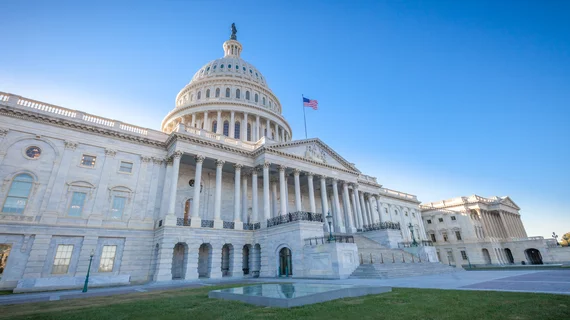The American College of Radiology (ACR) tallied nearly 600 “radiology-relevant” bills that have appeared in state legislatures in the fiscal year which ended June 30.
Below are summaries of five issues taken from an ACR news release.
1. Breast density
To date, some 35 states have embraced mandatory disclosure or breast density notification laws. In 2018, Florida, Iowa, Utah, Washington and Wisconsin signed notification bills into law.
Radiologists in Maine have agreed to provide this information without legislation. Utah made its optional notification statute mandatory. Also, additional bills were filed in Georgia, New Mexico and West Virginia.
2. Digital breast tomosynthesis (DBT) coverage
Support for private insurance coverage for DBT continues to grow amid evidence the method can detect breast cancer in patients with dense breast tissue.
As part of the 2018 legislative session, Louisiana, Missouri, New Hampshire, Oklahoma and Washington have added DBT coverage mandates. Those states join Arkansas, Connecticut, Illinois, Kentucky, Maryland, New Jersey, New York, Pennsylvania, Texas and Vermont.
3. Radiologic technologists licensure & radiologist assistant recognition
Chapters of the American Society of Radiologic Technologists (ASRT) are working with state radiological societies and the ACR to implement licensing or recognition protocol for registered radiological assistants (RRAs).
Currently, 31 states have legislation or regulation on the matter. This year, similar bills were considered in Alabama, Illinois, Mississippi, Missouri and New Jersey.
4. Certificate of need
The existing bills surrounding certificate of need regulations were established to limit the growth of hospital infrastructure, medical device acquisition and to limit inappropriate medical imaging utilization. However, opponents are looking to make major changes or scrap the programs as a whole.
During this legislative session, the issue was put forth for consideration in Arkansas, Connecticut, Georgia, Maryland, North Carolina and Virginia.
5. Kentucky workers comp reform
The state’s new HB 2 law requires a physician to be both licensed in the Commonwealth of Kentucky and a board-certified pulmonary specialist to assess diagnostic black lung x-rays when the state black lung claims are filed.
Physicians who read chest x-rays for diseases such as black lung—B readers—are certified by the National Institute for Occupational Safety and Health (NIOSH) for federal and state claims, but these experts do not need to be pulmonologists or radiologists, although they can be both.
“Because radiologists are less likely to seek board certification as pulmonary specialists, the new law is concerning because it effectively bars radiologists from reviewing x-rays involved in state black lung compensation claims,” the statement read.
According to the release, the ACR is working with StateScape to offer state chapter leaders automated reports on legislative bills related to imaging and healthcare policy. The college also offers policy updates through its Advocacy in Action eNews.

